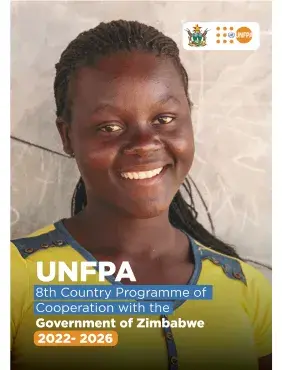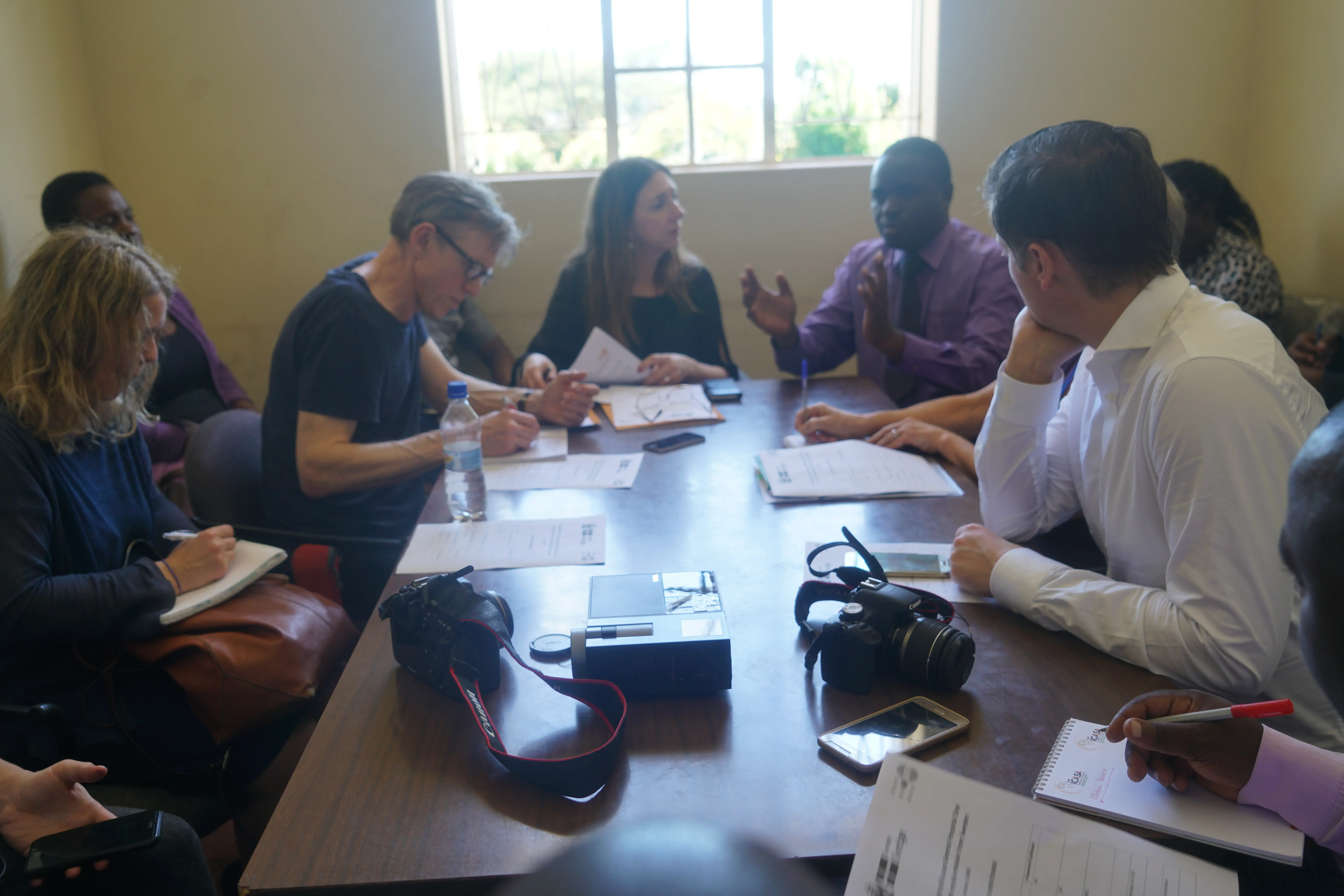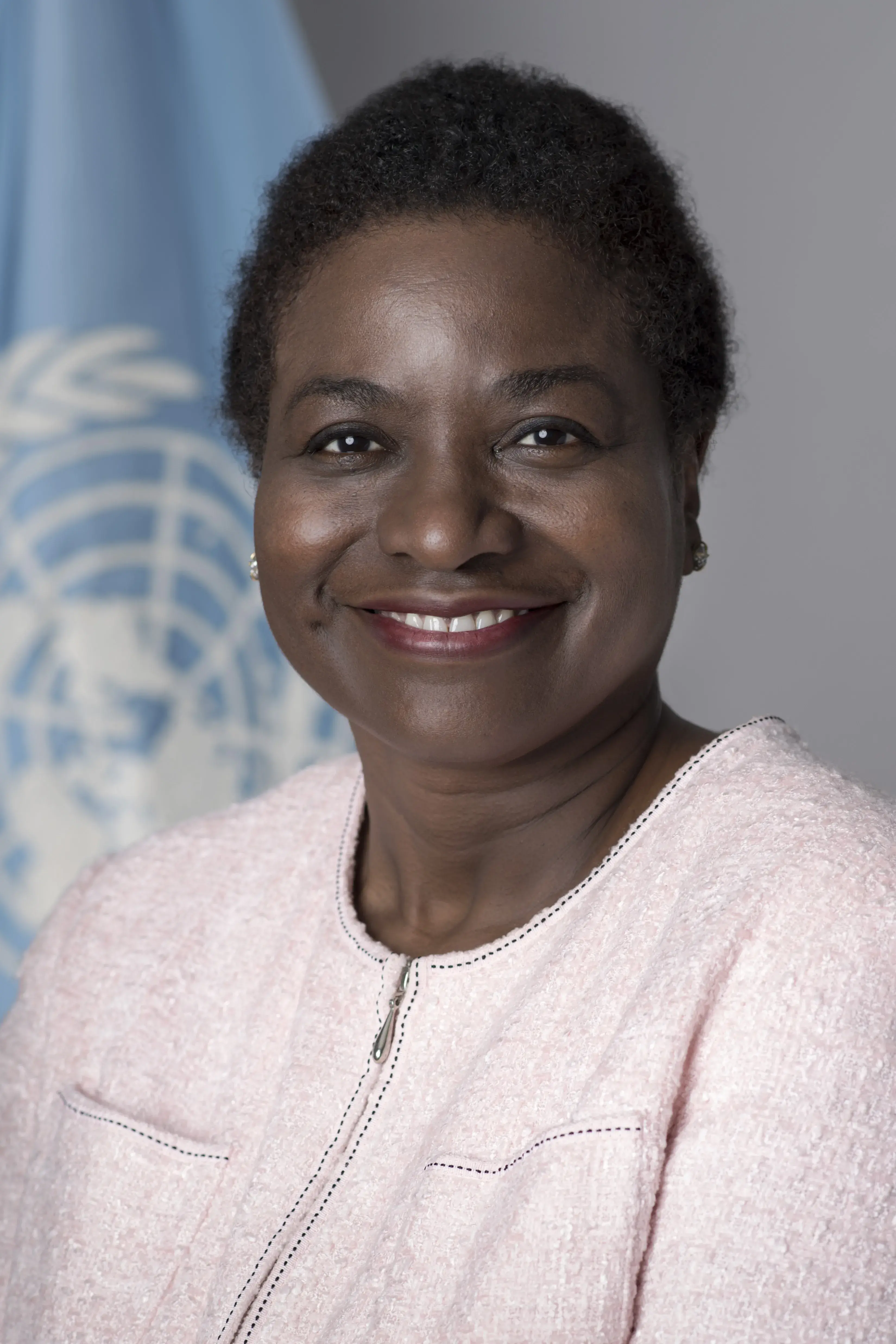FOREWORD
Over the last decade, Zimbabwe has made notable progress on several key health indicators including a decline in maternal deaths, the unmet need for family planning and HIV prevalence. However, there are still gaps which have been perpetuated by persistent economic challenges and multiple climate change hazards such as droughts, floods, and cyclones. The COVID-19 pandemic has further negatively impacted on the progress the country had made. These diverse challenges call for the development and implementation of sustainable and resilient strategies.
UNFPA has been operational in Zimbabwe since 1981. This new Country Programme (2022 to 2026) marks its 8th cycle of assistance. The programme is aligned with Zimbabwe’s Vision 2030, the National Development Strategy 1 (2021- 2025), the United Nations Sustainable Development Cooperation Framework (UNSDCF, 2022-2026) and other national strategies, including the National Health Strategy (2021-2025). It seeks to address key reproductive, maternal, neonatal, child health and adolescent health (RMNCH-A) challenges; non-communicable diseases with a focus on cervical cancer; gender-based violence and harmful traditional practices including child marriages; young people empowerment; and data.
Its overall vision is to improve the health and well-being of women, young people, vulnerable and marginalized groups in Zimbabwe by ensuring universal access to high-quality integrated SRHR information and services in an enabling environment.
To achieve this UNFPA will spearhead the following strategies: (a) Health systems strengthening to better address the SRH needs of women, girls, and vulnerable groups; (b) Improve adolescents and young people, and marginalised groups access to and utilisation of SRHR through integrated demand generation; (c) Institutional and communities capacity strengthening to prevent, mitigate, and respond to GBV and other harmful practices; (d) Evidence-based advocacy for sustainable financing for SRH services, including family planning commodities; Strengthen the national statistical system to generate and disseminate disaggregated data for policy formulation and decision-making; (f) Advocacy for laws and policies that support women, young people, and marginalized groups in exercising their SRHR and choices; and (g) Enhanced coordination for SRH and GBV preparedness and response in humanitarian contexts.
This will contribute to the achievement of the three transformative results of UNFPA: zero unmet need for family planning; zero preventable maternal deaths; zero gender-based violence; as well as the Eastern and Southern Africa priority on ending HIV infections.
To accelerate the implementation of these strategies the programme will employ five key accelerators:
- Leaving no one behind
- Human rights-based and gender transformative approaches
- Innovation and digitalisation
- Partnerships
- Data and evidence
- Resilience and adaptation
The development of the programme was guided by the principle of ‘leaving no one behind’. Key stakeholders and beneficiaries, including the government, non-governmental organizations, adolescents and young people, women, hard-to-reach communities such as people with disabilities, and key populations, were consulted and engaged in the programme design. It will consolidate past achievements and scale up good practices. The programme will strengthen the humanitarian-development-peace nexus, applying a continuum approach to ensure that the humanitarian assistance and emergency response to multi-hazard crises incorporates access to essential high-quality and inclusive SRHR and GBV services, including the prevention of sexual exploitation and abuse.





